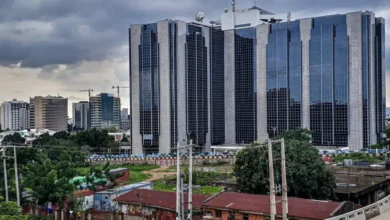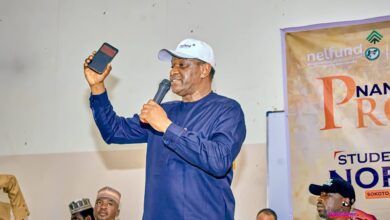Nigerians are in a worse place than in 1960 – AfDB President, Adesina

Akinwumi Adesina, President of the African Development Bank (AfDB), has stated that Nigeria’s per capita income has declined sharply, leaving citizens worse off than they were in 1960.
Adesina made this remark in a statement released on Thursday, May 1, following his keynote speech at Chapel Hill Denham’s 20th anniversary dinner.

He emphasized the urgent need for Nigeria to overhaul its economic structure if it hopes to achieve developed-nation status by 2050.
ALSO READ: Sex Trafficking: Sean ‘Diddy’ Combs trial to begin on Monday
He said:
Nigeria belongs in the league of developed nations. To get there, we must shift our mindset and pursue rapid economic growth.
Adesina attributed Nigeria’s economic downturn to decades of flawed policies, institutional weaknesses, and an overreliance on crude oil exports.
Our GDP per capita in 1960 was 1,847 dollars. Today, it stands at 824 dollars. Nigerians are worse off than 64 years ago, he stated.
He highlighted poor fiscal discipline, inconsistent policies, weak governance, and insufficient economic diversification as major factors behind Nigeria’s economic decline.
- FOLLOW US ON INSTAGRAM: Get the most important news on your social media feed
- FOLLOW US ON FACEBOOK: Get the most important news on your social media feed
- FOLLOW US ON X: Get the most important news on your social media feed
Adesina drew a comparison with South Korea, noting that although its GDP per capita was lower than Nigeria’s in 1960, it has since surged to $36,000.
The AfDB President called for a comprehensive policy reset and the strengthening of national institutions, cautioning that without decisive reforms, Nigeria risks further economic stagnation.
He urged the country’s leaders to move away from oil dependence and instead prioritize investments in technology, industrial development, and innovation to create a more resilient and competitive economy.
Underdevelopment should not be accepted as our destiny. We must break free from this pattern, he said.
Looking ahead, Adesina outlined five key priorities for Nigeria’s progress: universal access to electricity, high-quality infrastructure, accelerated industrialisation, innovation-led growth, and a globally competitive agricultural sector.
He emphasized the importance of positioning Nigeria as an industrial leader in Africa, highlighting the Dangote Refinery as a powerful example of transformative industrial development.
READ MORE: DIASPORA LENS




